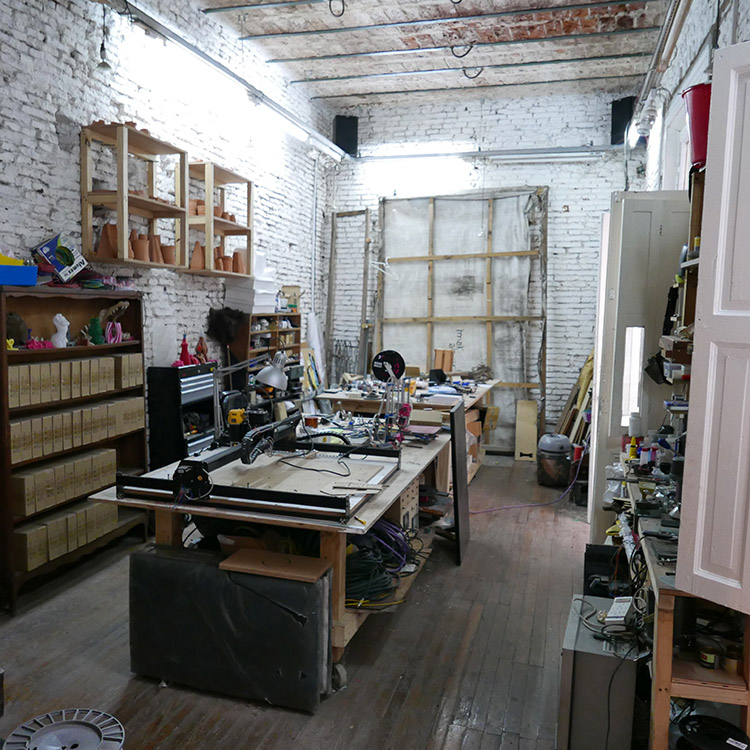El Reactor, summer chronicle of a pioneer fablab in Buenos Aires
Published 31 January 2017 by Laurent Catala
It’s summertime in Buenos Aires and probably not the best time to discover the growing network of Argentinian fablabs. While waiting for FAB13, the international Fabconf in Santiago de Chile end of July, we visited El Reactor.
Buenos Aires, correspondence (text and photos)
Finding an open fablab in Buenos Aires in the middle of January is a major achievement! Far from saying that to be a maker in the Argentinian capital you need to know how to live in hiding, but in the summer heat (approaching 40°C!) the Latin languidness easily returns. Behind anonymous and closed facades are located (are hiding?) some of the major actors/hackers of the country. This is the case of El Reactor, pioneer fablab here, but that requires to be tracked down in the Palermo working class neighborhood (but also a tad hype with its colored bars).
It’s in the most residential part of the neighborhood, between a small restaurant and a yoga class room, that we unearth it with a bit of effort. At first sight, the old house used as a lair looks more like a closed squat than a shared creation space! No plate or inscription other than a padlocked door and graffiti prohibiting parking, and just a doorbell highlighted with the R logo that you need to press with force (and repeatedly) to find a reactive ear.


Following this purely technical first pitfall, things suddenly get brighter inside when Leonardo Brito, “permanent artist” at El Reactor, plays host in the absence of the artist Jose Garcia Huidobro, founder and master of the house, gone to Uruguay for a few days.

In a very handicraft setting –apart from the brand new desk where 3D printers take center stage, you’d think you were in the old workshop of a mechanic or an electrician in the 1950s– the presence of the equipment can be felt and denotes the technical and creative intensity of the place. You can catch sight of a Shopbot Gantry CNC milling machine, a small laser cutter and machining equipment in the adjoining rooms.

But Leonardo’s field is 3D printers with which he designs a series of small LED lamps in the shape of a skull or a closed fist. One can see two Prusa and Rostock printers, and a Ultimaker one shaping some models.
“I joined the lab last year after the Mini Maker Faire Feria in June organized by El Reactor,” he explains. “Here, it’s above all else a working space. We organize classes, courses for people from all walks of life. Artists, students, people from the neighborhood. We function on this proximity model.”


The principle embraced by El Reactor, pioneer fablab in Buenos Aires (it was born in 2010) and initiator of the Fab Lab Buenos Aires network, today expanded to several other places in Argentina (in particular in Cordoba, Mar Del Plata, La Plata and Bariloche), is that of the Bart Bakker’s Dutch Minifablab. Its objective is to be able to generalize design and fabrication units in small-scale places, accessible to all potential users, researchers, creative people or neighbors, relying on an investment well under the $80,000 foreseen by the MIT.
Here, the budget of a minifablab is valued in local currency up to 100,000 Argentinian pesos (i.e. a bit less than €6,000). This principle is also the source of inspiration of the Reprap project, producing 3D printers cheaply. El Reactor is in fact behind the Reprap Argentina project started in 2011, that allowed it to progressively consolidate its identity and its mission to generalize low cost digital tools throughout Buenos Aires. Today, the Reprap Argentina community counts more than 3,800 subscribers to the Facebook group. Between its walls, according to Leonardo, “between 10 and 20 people come regularly” to take part in working and learning workshops.
Citizen Projects
Obviously, much remains to be done in Argentina–the narrowness and the discretion of the place remind us of it–and in other countries of Latin America in terms of maker customs and culture development. But with the running of the very first Argentinian Mini Maker Faire in June 2016, with the multiplication of citizen projects supported by El Reactor and the forthcoming FAB13, the annual Fabconference of MIT labelled fablabs that will begin on July 30 in Santiago de Chile, the international visibility should at last focus on South America.
For more information on El Reactor and on the Fab Lab Buenos Aires network
